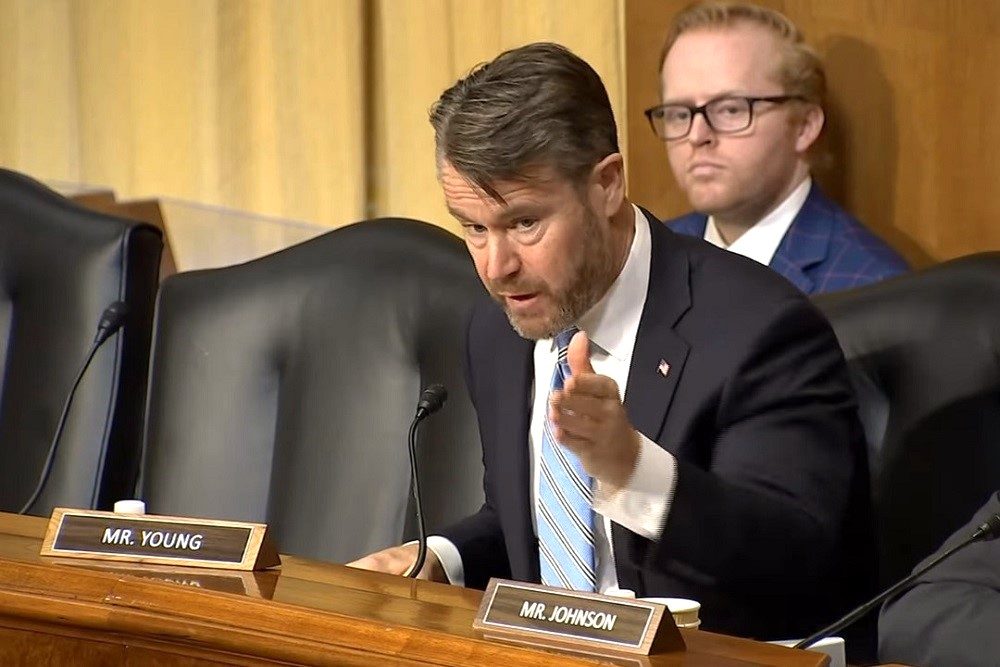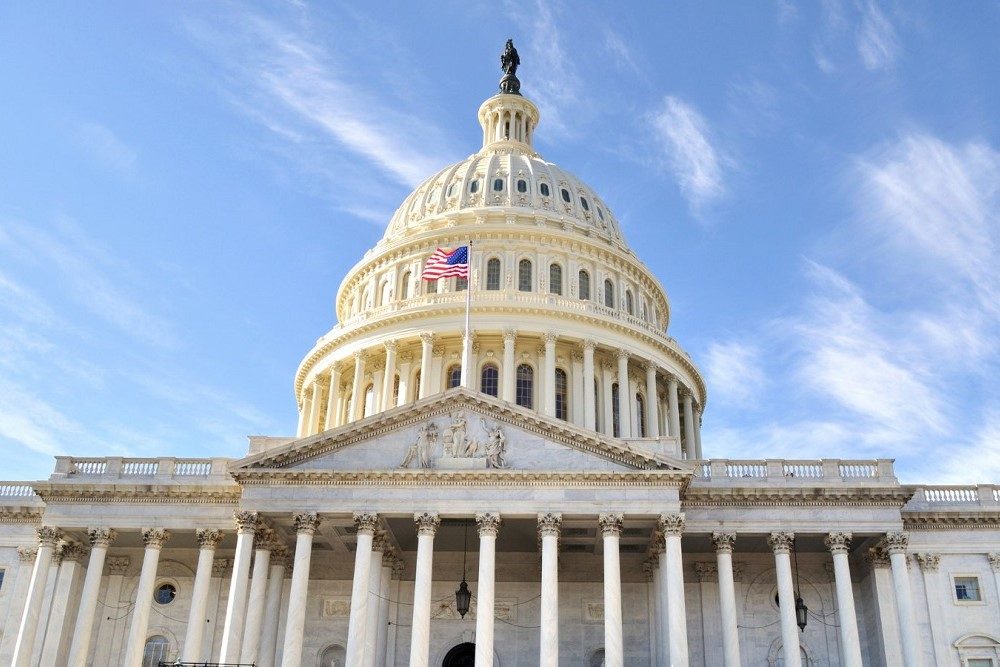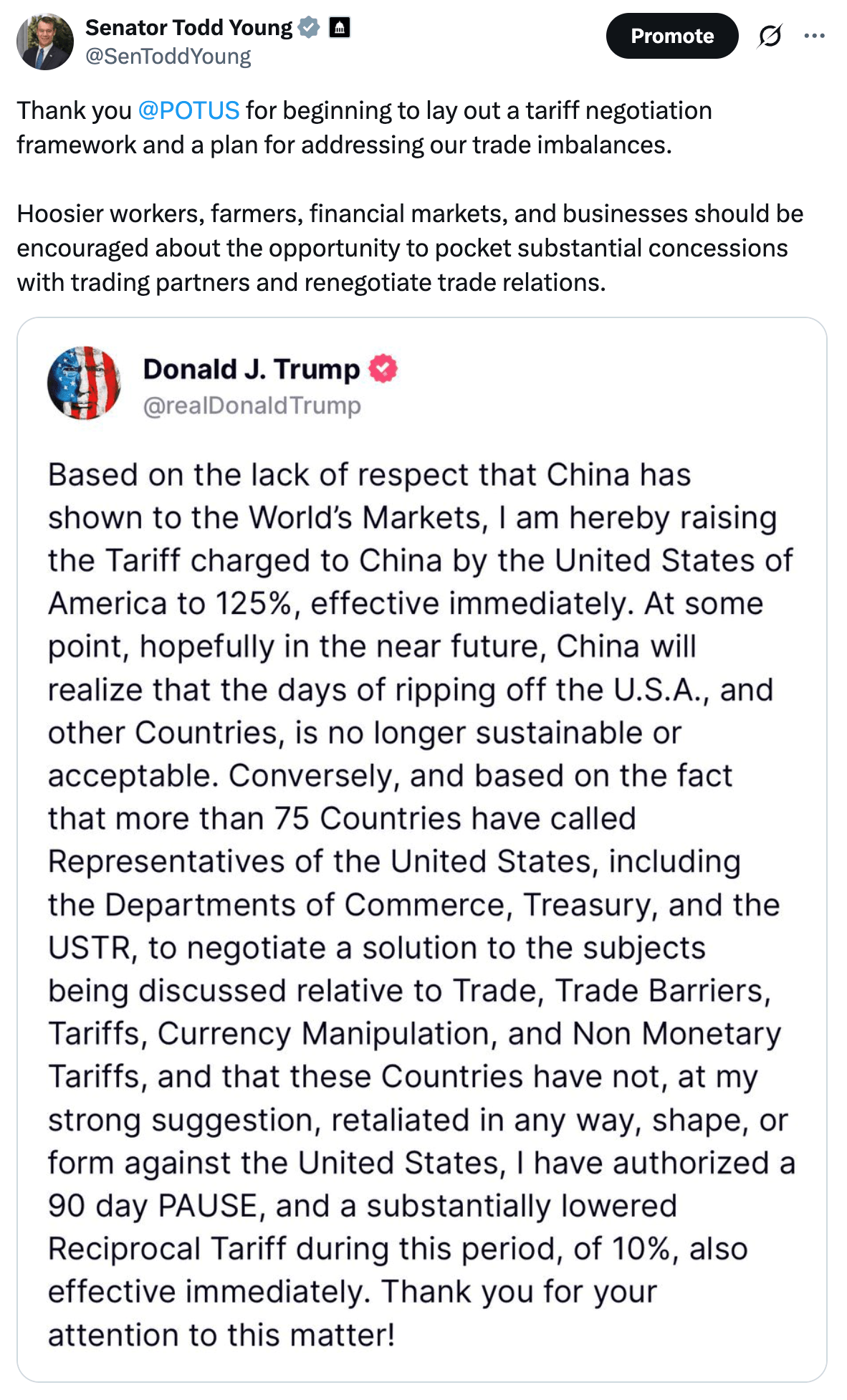Young: Measuring Tariff Impacts ‘Should Be Part of our Trade Policy’

On Wednesday, President Trump announced he was hitting the pause button on tariffs for 90 days, and that reciprocal tariff rates will now go to a baseline 10-percent on all countries except China. With concerns over Trump’s long-term tariff strategy, Senator Todd Young (R-IN) recently had questions about the overall impact on Hoosiers, and he was wanting answers.
“Trade retaliation doesn’t fall on everyone evenly. It has a different impact on a New York Tech firm than it might have on a Hoosier soybean farmer,” said Young during a Senate Finance Committee hearing earlier this week.
“This is creating some anxiety, this current tariff posture, among some of my constituents,” said Young. “On balance, I would say most of my constituents are supportive and they recognize that some turbulence might be required in order to end up in a better spot and reset trade relations.”
But Young said that tariffs impact different businesses and different parts of the U.S. in different ways.
“In Indiana, rural communities and export-driven manufacturers oftentimes feel the consequences as they feel the consequences first,” said Young.
U.S. Trade Representative (USTR) Jamieson Greer appeared before that committee hearing and was asked by Senator Young how the Trump administration is planning to measuring the impacts of their tariffs.
“Does USTR have a formal process to evaluate whether these tariffs are actually achieving their goals?” asked Young.
Greer responded, “Certainly, if other countries are bringing in their tariffs and their not-tariff barriers, that’s a good indicator. That’s the right direction. We also want to make sure that the trade deficit is going in the right direction and that means two things. It means we have better access and we can export more to these other markets, but it also means that they’re not using us as a dumping ground for their overproduction or their subsidized products, and so it goes both ways. So, it’s a country-by-country analysis and a case-by-case basis.”
Young adds that, “Measuring those effects—and whether tariffs are meeting their goals—should be part of our trade policy.”
Following President Trump’s announcement to pause his reciprocal tariff strategy and lower the baseline rate of the tariffs against all nations except China, Senator Young issued the following statement:
CLICK BELOW to hear Hoosier Ag Today’s radio news report:


